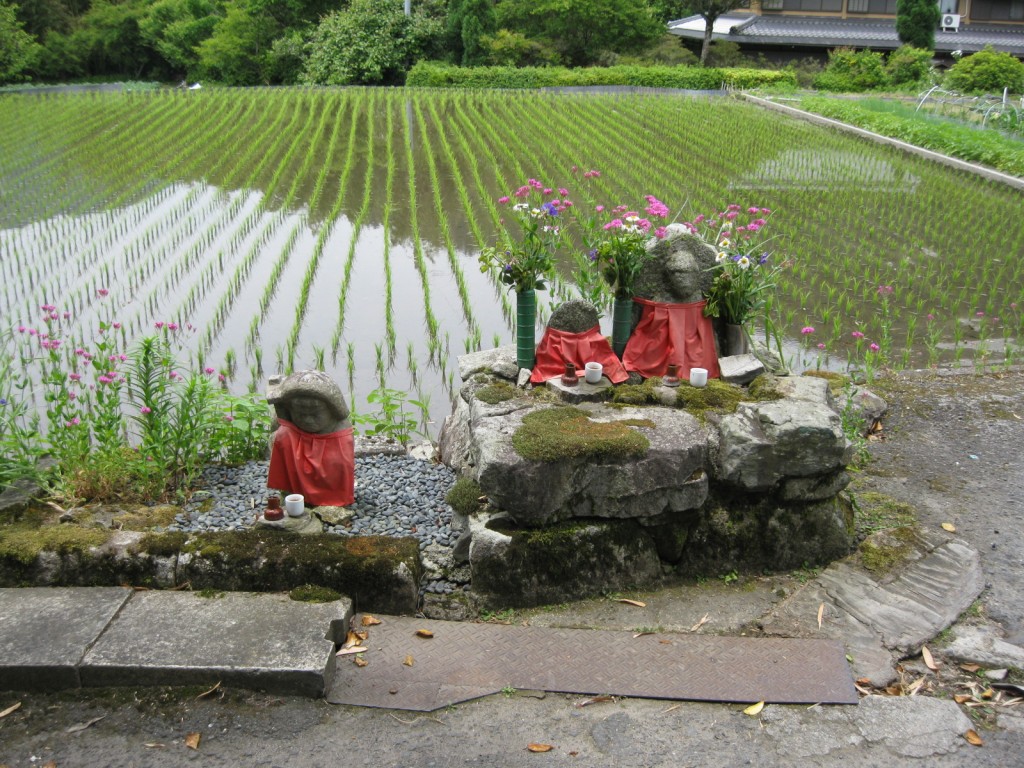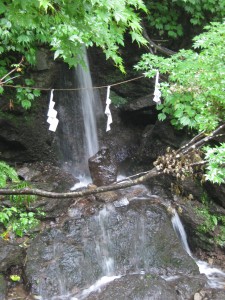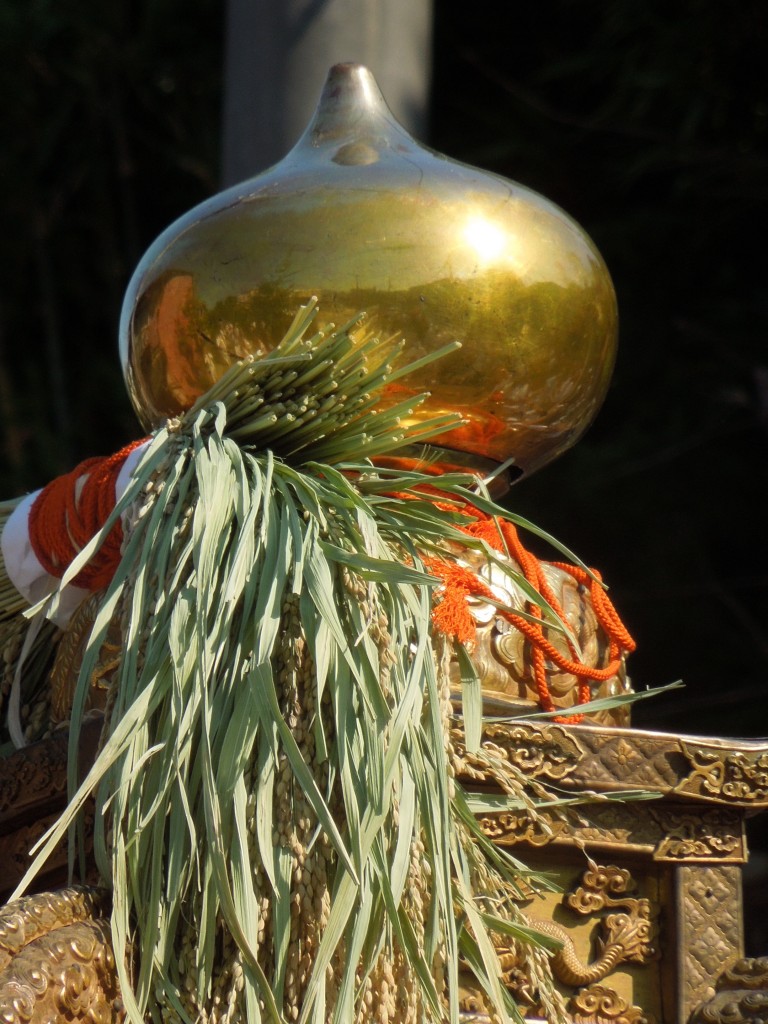
With the arrival of rice came continental practices based on harmony (photos by John Dougill)
Farming with Kami, Shinto Spiritual Beings
by guest contributor, Sally Writes
Early Shinto was once centered around rice-planting agricultural festivals and reverence for life. As the religion evolved, the importance of rice agriculture remained and Shinto rituals still play a significant role in farming. Since planting and harvesting are the core values and building blocks of life, they can also develop a harmonious community if done correctly. If farmers had more awareness of Shinto values, they would ultimately become more harmonious with their land, crop, and life in general.
The Kami of the Land
The very concept of trying to create sustainable ways to farm fits Shinto philosophy. In Shinto, the Earth is occupied by various kami or spiritual beings. Kami can take the form of natural phenomena in the environment, such as mountains, trees, and rivers. Therefore, doing harm to any of these elements would ultimately do harm to the kami that inhabit or represent them. This leads to respect for the land and the use of sustainable techniques to minimize the damage done, so as to prevent the disruption of the kami’s peace.

Water as the gift of life
The Purity of Water
In Shinto, clean moving water has an important role in purity and purification. Clean water was used to cleanse the god Izanagi when he went to free his wife Izanami from the underworld. In agriculture, clean water has an important place as well. In aquaculture and hydroponic techniques, it is vital to have a clean source of water. Aquaculture thus provides a cycle of life that is impactful and fulfilling in both agricultural means as well as Shinto principles. The water provides elements needed for plants to grow. It also provides a home for the aquatic creatures that inhabit it. These creatures then provide natural ingredients, fertilizer, and nutrients to help plants grow. In return, the plants filter the water to provide aquaculture farms with a clean habitat. In this way aquaponics is a source of pure clean water that constantly moves between two different states, much as in the Shinto concept of purification and renewal.
The Use of Natural Pesticides
Shinto places a strong focus on harmony. This itself can be considered a cyclic concept, by which something constantly renews itself and exists perpetually. Ideally, farmers would like for environments to be in harmony so that all the plants and animals live together without one population overwhelming the other. One way to do this is to provide pest management. The sustainable and Shinto-style way of providing pest management is through the introduction of natural predators rather than pesticides. Pesticides can be poisonous and are an outside source that has to be reapplied and brought in from potentially environmentally harmful locations. Instead, investment in ladybugs and other natural predators of pests create an environment which can be kept in harmony, without the need for external intervention.
While Shinto may not have formal teaching, it makes a lot of sense when applied to the environment. Whether it’s to tell us the importance of water or to respect all of nature and live in harmony, it is rooted in the notion that the Earth is a special place for everyone and that we should not ruin it with unsustainable practices.
****************
For more by Sally Writes, see this piece on Shinto gardens or this piece on Onsen purification.
*****************
In The Sacred Balance: Rediscovering our place in nature, leading scientist and environmentalist, David Suzuki, claims that at some point in history mankind lost spiritual connection to the natural world and stopped seeing the spirit in the tree. Instead the tree became an object, something inanimate to be ravaged, chopped down and used for material ends. Nature was relegated to a resource, and the earth became a forum for humans to prove they were fitter to survive than any other species. Once food was a precious gift; now it’s a throw-away commodity. The animals that were our brothers and sisters are tortured, maimed and mutilated in factory farms. The conclusion Suzuki comes to is that we have to recover our reverence and respect for the world around us. We have to recover our connection to the spirit in the tree.

Shinto thanksgiving festival for a successful harvest

Leave a Reply